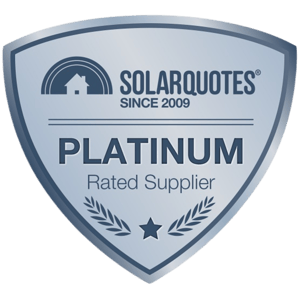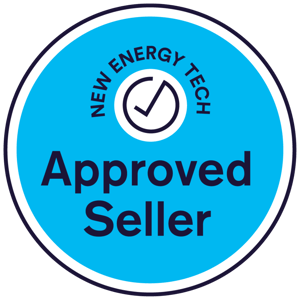Choosing the Right Solar Installer: What Every Homeowner Should Know

With Australia's abundant sunshine and the push towards renewable energy, installing solar panels has become a significant consideration for many homeowners. Yet, with a booming industry, the choice of solar installers can be overwhelming. This guide is tailor-made for Aussie homeowners aiming to make a seamless transition to solar power by choosing the right installation partner.
The Importance of Choosing the Right Solar Installer
The decision to go solar is an investment in both the environment and your home's energy future. In this path towards sustainability, the solar installer you choose plays a vital role. A reputable installer ensures your system is optimally designed, fitted, and maintained, safeguarding against suboptimal performance and avoidable issues.
Researching Solar Installers: The Key to Your Solar Journey
Credentials and Certifications
To begin, it is important to verify the essential qualifications of a solar installer. In Australia, it is crucial that they hold accreditation from the Clean Energy Council (CEC), as this demonstrates their adherence to industry standards for solar system design and installation. Additionally, inquire about their partnerships with manufacturers and any special certifications relevant to the specific type of system you are considering. Lastly, it is also important to ensure that they are an approved solar retailer by NETCC.
Reputation and Customer Reviews
Word of mouth can be a potent indicator of an installer's quality. Investigate their track record using online review platforms and industry forums. Look for consistency in positive feedback and note any recurring complaints or issues.
Years of Experience
While new companies can be innovative, experience often translates to reliability. Evaluate how long the installer has been in business, along with the experience levels of their installation teams and support staff.
Warranty and Support
An extended warranty is a warranty only as good as the company behind it. Inquire about the scope of support after installation, whether for system malfunctions, upgrades, or future expansions.
Understanding Solar Energy Systems: Panels, Inverters, and More
Different Types of Solar Panels
Understanding the different panel options, such as monocrystalline, polycrystalline, and thin-film, and their relative efficiency and costs is critical. Your installer should be able to advise on the best choice for your specific energy needs and budget.
Inverter Options
The inverter is the heart of your solar system, converting DC power produced by the panels into AC power for use in your home. There are string inverters, power optimisers, and microinverters, each with distinct advantages. Your installer should explain the best match for your panel setup.
Battery Storage
Battery storage is ideal for those looking to maximise their self-consumption of solar energy or for areas prone to blackouts. Discuss battery options with your installer if you're considering a solar-plus-storage system.
Evaluating Quotes and Pricing: Transparency is Key
Comparing Quotes from Multiple Installers
Seek multiple quotes to compare not only the total cost but also the quality of components and services included. Be wary of quotes that are significantly lower than the market average; there might be a reason for the reduction in price.
Hidden Costs to Watch Out For
Ensure the quotes you receive account for the entire installation, including any fees associated with installation, grid connection, and permits. Look for transparent pricing that leaves no room for unexpected extra charges.
Financing Options
Many reputable installers offer financing options. Understand the terms, interest rates, and any upfront costs associated with the financing plan before committing.
Considering Local Factors: A Site-Specific Approach
Climate and Weather Conditions
Your local climate and weather patterns will influence the required system size and type. Discuss the local conditions with your installer to ensure your system is designed to withstand and perform optimally under these conditions.
Local Regulations and Permits
Navigating the local regulations and obtaining permits is a significant part of the installation process. A reliable installer will manage this paperwork for you, ensuring regulatory compliance.
Solar Incentives and Rebates
Australia offers various incentives for solar installation, including Small-scale Technology Certificates (STCs). A professional installer should explain how these schemes work and help you apply for available rebates.
Case Studies and Success Stories: Social Proof for Confidence
Real-Life Examples of Success
Ask potential installers for case studies and examples of similar installations they've completed. Seeing successful projects in your local area can provide assurance in their capability and quality of work.
Homeowner Testimonials
Positive reviews and testimonials from homeowners can be compelling evidence. Seek out and, if possible, speak directly to people in your local community who have had positive experiences with the installer you're considering.
Partnering for a Bright, Sustainable Future
The choice of solar installer is paramount to reaping the full benefits of your solar investment, including long-term savings and reducing your carbon footprint. Take your time to research and select an installer that meets all the criteria mentioned in this guide. It's the critical first step to a bright, sustainable energy future for your home.
For Aussies seeking a trusted and experienced solar energy installer, look no further than Smart Energy Answers. Our dedicated team specialises in designing and installing tailored solar solutions across the country. Talk to our energy experts and take the first step towards long-term savings and environmental stewardship.
%20(1).png?width=265&height=96&name=www.smartenergyanswers.com.auhs-fshubfsSmart%20Energy%20Answers%20Logo%20(HIRES)%20(1).png)

.png?width=514&height=121&name=Tesla%20Powerwall%203%20(new).png)







